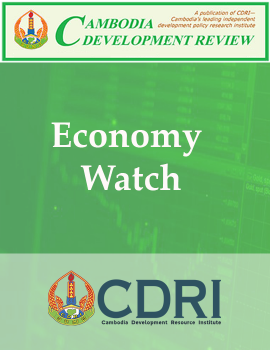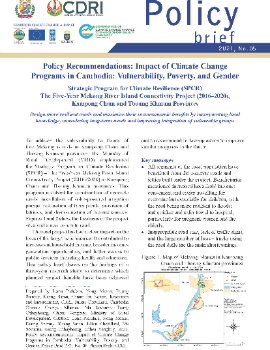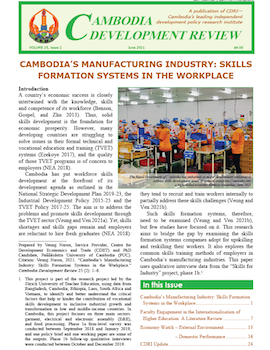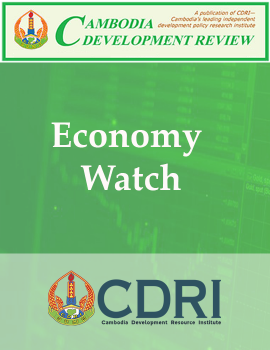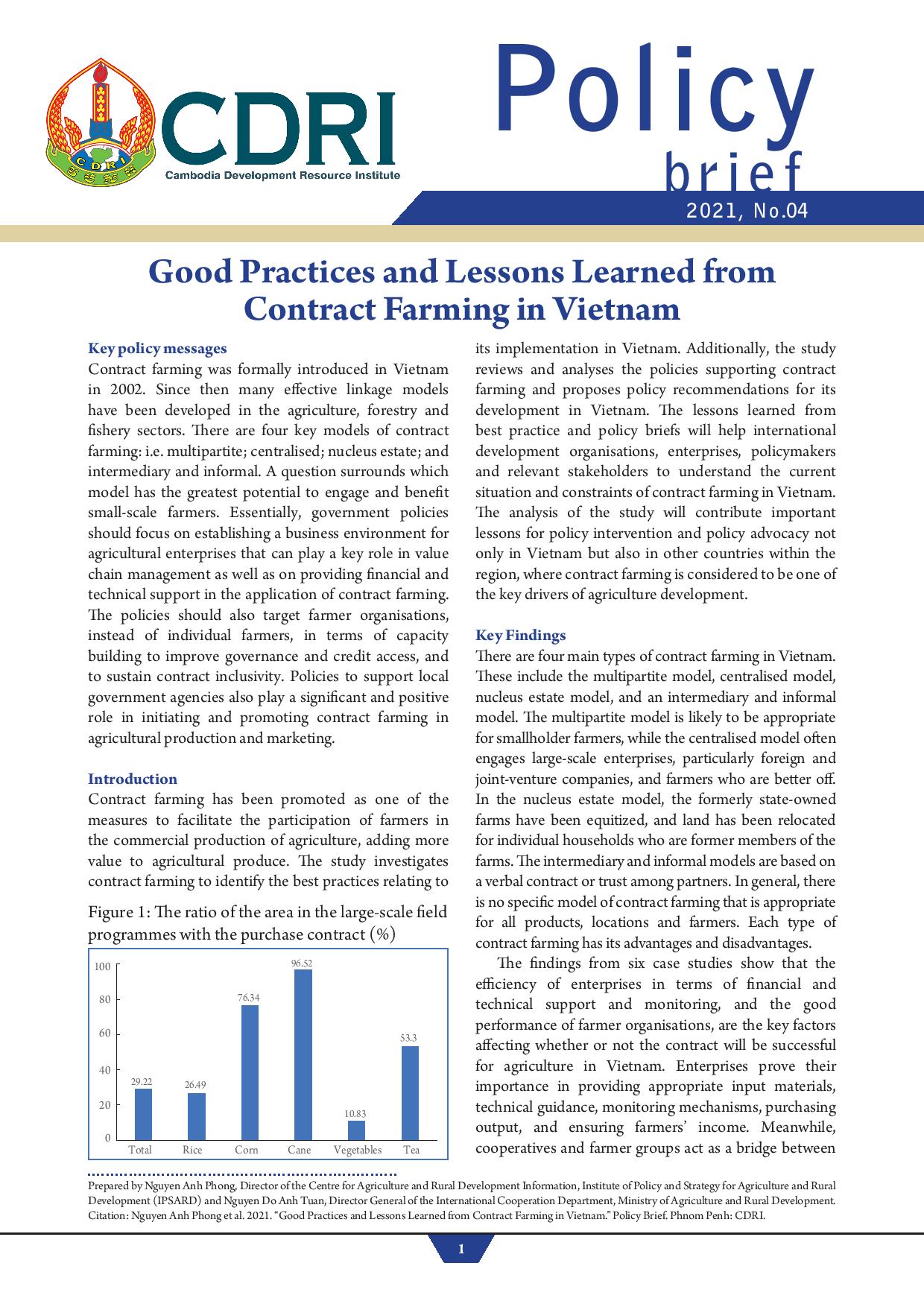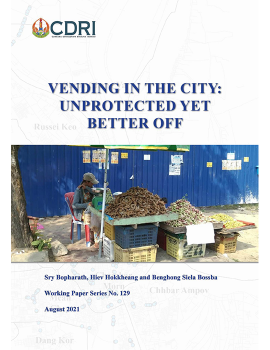
Vending in the City: Unprotected Yet Better Off
Street food vending is a vital part of the urban economy, and the poor, in particular, rely on it to earn their living. We examine their socio-economic dimension, especially their backgrounds and business operations and challenges, as well as the perspectives on life satisfaction among different income earners. Importantly, we looked at the margina...
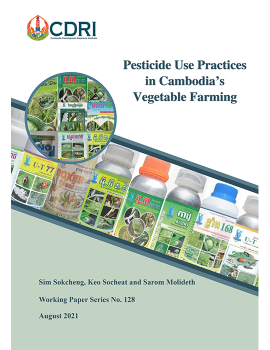
Pesticide Use Practices in Cambodia’s Vegetable Farming
Pesticides are agricultural technologies that farmers use to control pests and weeds and remain an important modern input for crop production including vegetable farming. There are many types of pesticides, such as insecticides, fungicides, rodenticides and herbicides, that target different threats to crops. While the potential production benefits...

State of Gender Equality and Climate Change in Cambodia
The purpose of this assessment report on gender equality and climate change is to analyse the gendered impacts of climate change and to raise awareness about the benefits of, and need for gender-responsive climate action. The study has two main objectives: i) to strengthen country-driven processes by presenting more evidence of the links betwe...
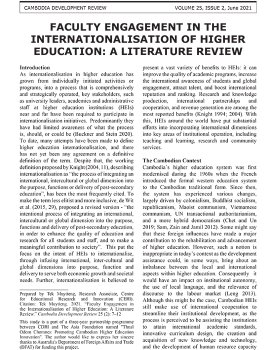
Faculty Engagement in the Internationalisation of Higher Education: A Literature Review
This review paper aims to examine the characteristics of faculty engagement in the internationalisation of higher education and the factors influencing the participation of faculty members in such a process. The review finds that faculty members have so far engaged in international activities in the form of international teaching and research, join...
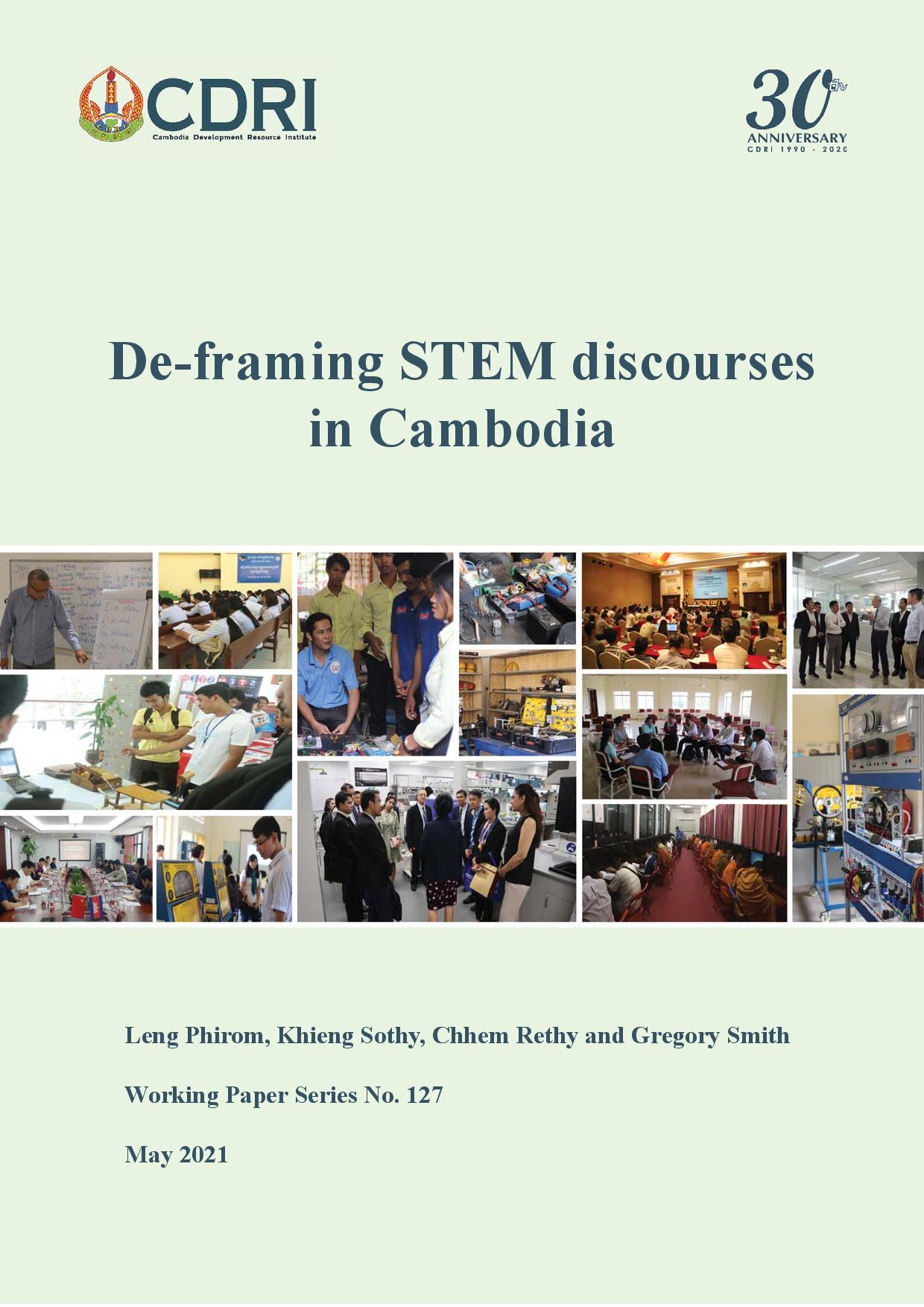
De-framing STEM Discourses in Cambodia
This qualitative study examines the development of STEM programs in Cambodian higher education, using as its theoretical framework Chesky and Wolfmeyer’s (2015) concept of an integrative STEM education, which highlights the intersections between purpose, pedagogy and content. The teaching of STEM in Cambodia remains discipline-based, dominated by t...

